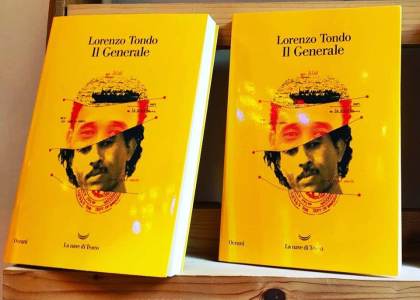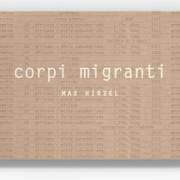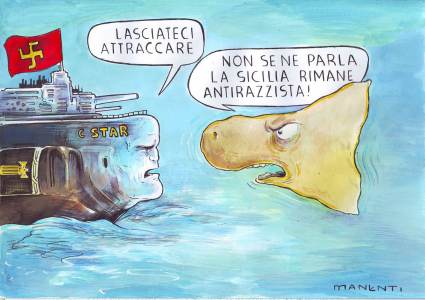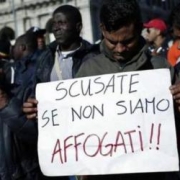Prejudgment instead of due process: The case of Medhanie Berhe
The Case and the Mistaken Identity
The wave of sentiment following the massacre in Lampedusa on October 3rd, 2013 when 368 Eritreans lost their lives, as usual, gave a rhetoric boost to the project of trying to catch human traffickers on the route between Africa and Europe.
In 2016, Palermo’s office of prosecution proudly announced the arrest of one of the biggest fish in human trafficking, namely Medhanie Yehdego Mered from Sudan. In Italy these news were reported to the public with great satisfaction. Chief prosecutor Ferrara described him with the following words: “One of the four most important traffickers of North Africa.” International media also reported of his arrest in detail and called him “responsible for the massacre in Lampedusa,” according to the British National Crime Agency.
However, after the news became public numerous calls of Eritrean citizens were received. They denied that the man who was arrested was, in fact, Mered. Based on these doubts, Lorenzo Tondo, the Sicily correspondent of the Guardian, started his tireless investigation. Right from its beginnings, Tondo had followed the case and has now published its complicated course in a non-fiction book titled “Il generale.” His investigations show that it is one of the most controversial juridical cases of our times with regards to migration.
Mered, whose nickname is “Il generale,” is searched for by the police worldwide. The problem is, however, that the man who was extradited by Sudan and has now been jailed in Palermo for three years is most likely not the man they were looking for but Medhanie Tesfamariam Berhe, a carpenter from Eritrea. This man is now facing trial and is being mistaken for someone he is not. All of this began in May 2016 when he was arrested in Khartoum and brought to a penitentiary in Palermo. Smuggling humans was of what he was accused. Right from the beginning there were inconsistencies and contradictions, especially there was a lack of similarity between the defendant and the photo on the warrant of the trafficker Meled. The investigation continued although it became more and more clear that the evidence – wiretapped conversations and phone calls, the testimony of hundreds of Eritreans, and DNA profiling – was contradicting the accusation, an accusation that was built on methods usually used in fighting the mafia.
Accusing and Punishing the Migrants
Due to the reconstruction done by Lorenzo Tondo it is now possible to enter the paradoxical juridical course of action and understand how a narrative was constructed around this man to be able to accuse and punish him although lacking evidence. On the contrary, the overwhelming part of the collected evidence exculpates him.
Three years have passed since the beginning of the trial. For the time being, the end will be next week. The untenable nature of the prosecution is more than obvious. Berhe is the perfect scapegoat for Italy and Europe; they can point their fingers at the human smugglers who supposedly are the only ones responsible for the dead in the Mediterranean. He is made to serve as proof that the war on human trafficking is in full swing.
It is easy to put the case Berhe in a clear historical and political context. Based on the principle of criminalizing migrants and migration, the arrests and prosecution of alleged human traffickers are piling up and stand in for a war on organized crime that serves one part of the flow of migration. The categorization of the events follows a logic of security policy that wants to portray migration as a process that is organized solely by criminals and the mafia. In this way the policy of closed borders and oppression is legitimized although it is this policy which is the true reason for the blossoming human trafficking and the dead on the borders.
We only know too well that the so-called human traffickers who are steering the boats full of migrants are themselves only refugees who are acting on necessity and are forced under threat of violence to act in this way.
The Search for Truth and for the People Responsible for the Massacres and Violence
In the course of delegitimizing migrants the supposed human trafficker can only too easily be made to play the role of the criminal and be put to trial, the role of the person responsible for the tragedies on the illegal migration routes, the role of the at any rate guilty on to whom Europe openly and officially offloads its guilt.
Once again the consequences of the European guilt are suffered by the migrants who are easy targets so that Europe does not have to take on responsibility for the violence against migrants. Hushed, the dying at sea will continue while the true responsible will continue unchallenged.
Berhe’s power of resistance is extraordinary. He faces from his prison cell this judicial and media spectacle while he is put to trial for a crime he did not commit. He has tenacious journalists like Tondo on his side and lawyers such as Michele Calantropo, who has defended him since 2016 against the accusations made against him. It is due to them that the story of this man was spread even more internationally than nationally and it is wide in the open that this is a case of grave injustice. The contribution of these people in the relentless search for truth deserves today more than ever the complete support of all social forces and of public opinion. This should make possible to exonerate Berhe and like him all other migrants who have been wrongfully convicted based solely on their being migrants. We can hope that the hearing of evidence in front of the court will lead to a verdict that will honor the true facts.
The discrediting and prejudging of migrants and their helpers will not be unchallenged: even if the chaos is upheld to distort the actual situation, it is clear that the true responsible for the shipwrecks, dead, and violations of rights are Italy and the members of the European Union. They are the cause for the biggest crimes against migrants. If it is true that there will always be someone in institutions of power, social media, and on the streets who is willing to convict someone innocent, it is also true that there will always be someone who will counter this and will uphold the truth until sooner or later the people responsible will be held accountable.
Silvia Di Meo
Borderline Sicilia
Translation: Annika Schadewaldt








